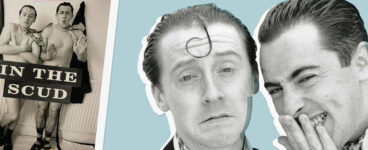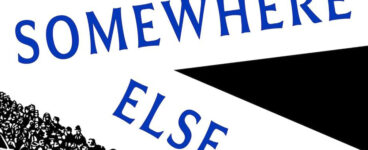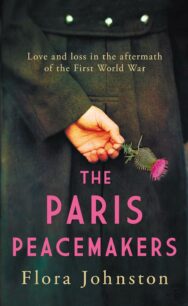‘It’s important to me to get the history as correct as possible, and then I let my characters inhabit that world and see where it goes.’
The Paris Peacemakers follows three Scots as they attempt to pick up the pieces of their lives while the fabric of Europe is stitched together after the catastrophe of the First World War. Author Flora Johnston spoke to us about the place of women in 20th Century writing and her researching process.
The Paris Pacemakers
By Flora Johnston
Published by Allison & Busby
Hello Flora, congratulations on the publication of The Paris Peacemakers. Could you tell our readers what to expect?
The Paris Peacemakers is set in France and in Scotland in 1919, against the backdrop of the Paris Peace Conference. It tells the stories of three Scots trying to pick up the pieces of their lives after the trauma of war, while politicians attempt to rebuild the world they have shattered.
We hadn’t heard about the Scotland rugby team and the First World War. How did you come across their story?
I’m a rugby fan and in March 2020 I was at Murrayfield for the match between Scotland and France. In the programme there was a short article commemorating the centenary of the equivalent match in Paris on 1 January 1920, which was the first Five Nations match after the war. I was already researching the Peace Conference by then, and now this became part of the story too. I was fascinated by these young men who didn’t know what was ahead as they played together for the last time in 1914, and by questions of the relationship between sporting pride, glory and war. I then discovered the story of John MacCallum, Scottish rugby captain and conscientious objector, and wanted his choice and its implications to be honoured too.
Was there anything in particular you wanted to say about the place of women at this time in writing your characters of Stella and Corran Rutherford?
So much! Stella and Corran are inspired by two of my great-aunts, one who worked as a lecturer in the army education scheme and the other who was a typist with the Peace Conference. By the early 20th century, with the right background and encouragement, women could achieve a university education but they were still operating in a very unequal world. Oxford and Cambridge allowed women to sit exams but didn’t award degrees. If a woman did achieve a career, like Corran, she would be required to give it up on marriage. As for the typists at the Peace Conference, they were expected to be grateful for the roles they had while men of equivalent education had far more interesting work. I also found a newspaper article which stated that only attractive women were chosen to go out to Paris with the British Empire Delegation. So it was interesting to place my characters in that environment and see how they would react!
The Paris Peace Conference’s aims and the reality of its consequences is known to present day readers. Why did you want to explore these events now?
One of the things that surprised me in my research was discovering how many people at the time knew that the Peace Conference had been a failure and would lead to more war. There was a real sense of missed opportunity, as different voices were excluded from the negotiations, and idealism was lost in political self interest and revenge politics. War is catastrophic, and peace is terribly hard to achieve, but the lessons of the past are very relevant for the world we live in today, where we see the same patterns of conflict, revenge and generational harm. We desperately need peacemakers.
Could you tell us about your research process?
My background is in Scottish History and I love research. I read a lot around the topic for a few months, going off at all sorts of tangents and noting anything that might become useful. I use that to make a time frame of historical events, because it’s important to me to get the history as correct as possible, and then I let my characters inhabit that world and see where it goes. I do carry on doing some research as I go – I know some writers don’t like doing that but for me I can’t write the fiction unless I’ve got a grasp of the facts, so if I come across something I need to understand I disappear off down a rabbithole for a day or two before I get back to the story.
What draws you to write historical fiction? Who are your current favourite historical fiction writers?
I love history and worked in museums and heritage for years, so it was natural that I would use that in my fiction. I think for many readers historical fiction is a great way of accessing periods of the past that they wouldn’t otherwise explore. We have some outstanding historical fiction writers in Scotland at the moment. And The Land Lay Still by James Robertson is one of my favourite novels, with its portrayal of 20th-century Scotland. Andrew Greig’s writing is beautiful, and Rose Nicolson was just superb. Last year I really enjoyed Music in the Dark by Sally Magnusson, which draws the reader into the human consequences of the Clearances long after the event. I also love Margaret Elphinstone’s historical fiction books like Voyageurs and The Gathering Night, which take you inside worlds you wouldn’t otherwise encounter.
The Paris Pacemakers by Flora Johnston is published by Allison & Busby, priced £9.99.
ALSO IN THIS ISSUE

 The Book… According to Alan Cumming
The Book… According to Alan Cumming
‘The book is a celebration of the characters and also Forbes and I’s friendship and artistic collabo …

 Somewhere Else by Jenny Daiches
Somewhere Else by Jenny Daiches
‘A man is no more than his exhausted lungs. A woman is only the lesions on her arms, a child her ben …













